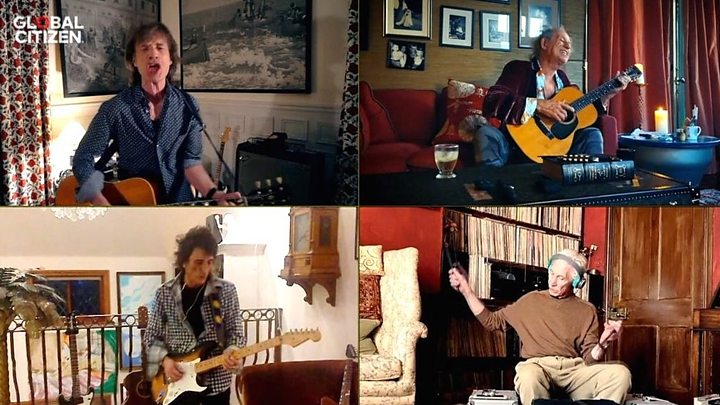With great Leeds arts community spaces such as Hyde Park Picture House or the Leeds Museums & Galleries temporarily closing due to Covid-19, it is easy for students to remain defeatist, envisioning the creative landscape through a gloomy corona-ridden perspective. However, there are pockets of creativity surfacing in spite of the virus as all-round creatives, not just in Leeds but nationally and internationally seek out new imaginative ways to entertain the masses. Not only are these methods of entertainment beneficial to the public, but they keep the world of arts and culture alive, often providing livelihoods for great artists who rely on traditional methods to promote their craft.
Sadly but inevitably, on 17th March at 1pm, Hyde Park Picture House cancelled all of their upcoming screenings, while the same day at 5pm Leeds Museums & Galleries became “temporarily closed to the public until further notice”.
The more widely spread impact of Covid-19 upon the nation has come to the media’s attention: over four hundred of the UK’s leading cultural figures including Nick Cave, PJ Harvey, Johnny Marr and Meera Syal have all signed a letter written by the Creative Industries Federation (CIF), requesting the government to fund artists with the accompanying rhetoric that the UK could become “a cultural wasteland” because of the economic damage caused by the Covid-19 outbreak. Call to action was heightened after the German government had effectively supported freelancers and small businesses through a federal aid package worth €50 billion (£43bn) distributing €5,000 payments to individual freelancers, many of whom included artists. Despite the UK government’s furlough scheme, many remain adamant that the government has not done enough to support struggling artists and small businesses.
In contrast to smaller businesses, streaming giants Netflix and Amazon Prime have hit shows such as Sex Education which have been put on pause, but are continuing to reap the benefits of the couchbound general public. Netflix’s Extraction, which I recently reviewed for this paper, premiered to the biggest online opener in the platform’s history. YouTube’s viewership has skyrocketed, but a lack of advertising revenue has dented the site’s projected financial success. Many viewers have reportedly turned to online gaming in television’s place, with the Nintendo Switch having sold out in many stores.

Despite the potentially colossal economic downturn, which has hit almost every conceivable industry, there have been pockets of creative outbursts in the mainstream. At the opposite end of the artistic spectrum to television, star-studded music benefit concerts such as One World: Together at Home, featuring the likes of Billie Eilish and Ellie Goulding, saw the rise of streaming platforms raise millions for those in need in a Live-Aid-style.
Equally, for many of the pro-active workers in the arts industries, the lengthy time at home has provided unprecedented creative license, with many homes becoming new Instagram live stages to broadcast their projects to even wider audiences than before. In March, a Dorset-based artist Stuart Semple premiered life drawing classes from his studio via Facebook, hiring a model and inviting anyone to participate. This resulted in some 3,500 artists globally sharing their efforts using the hashtag #SempleLifeClassLive. Many musicians such as Easy Life, FUR, Rex Orange County, Tyler the Creator and more have livestreamed either old hits or new songs. As Semple rightly points out, “It’s a crucial time for the arts globally to step in and fill the void in people’s lives.”
Locally Leeds Museums & Galleries have made the change onto the web, where you can access virtual tours of their various exhibits and they have even launched a podcast called Museums n’That. Apple Podcasts listeners love the new accessible fusion of information and comedy, providing a fun behind the scenes look at Leeds Museums & Galleries. One listener raved that the hosts have become “Lockdown Legends” and each podcast is “informative, enlightening and positive.”
There are instances where creativity and entertainment are uniting people during this pandemic. Indeed, my neighbours and I have recently discussed the latest National Theatre productions premiering on their YouTube channel with a Gillian Anderson remake of A Streetcar Named Desire opening in audiences’ living rooms nationally. At the student level, nineteen different university drama societies including Leeds, Bristol, Warwick and others, have taken part in a campaign called ‘Students Saving Our Theatres’ which has raised funds via a crowdfunding page pledging to support spaces including Leeds Playhouse.
The world of comedy has been struck by the virus, but stand-ups are fighting back. Komedia, which runs in both Brighton and Bath has organised livestream sets and pre-recorded features on YouTube where stand-ups have a new digital platform to make audiences laugh. The only slightly unsettling factor is the lack of a laughter track, but perhaps this develops comedy in new profound ways.
With the advent of Zoom’s roaring popularity, I took part in a recent free Eventbrite online QnA with the Idler Magazine where Armando Iannucci answered questions about inspiration behind projects including The Thick of It, The Personal History of David Copperfield and Veep. I got to ask about the backlash he received from Russia for The Death of Stalin. Free events such as these, it could be argued, are deconstructing the absurdly mainstream prejudice that arts and culture has to be elitist and for the privileged. Instead they bring people together and break down previous class-based presumptions.
Since the start of Covid-19 despite the economic malaise, art has found new ways of branching into people’s hearts and homes. Though we may get sick of the repetitive Zoom meeting links in this virtually-shifted environment, it is reassuring to know that the world of arts and culture is constantly adapting to promote new creativity to both the students of Leeds and the wider public.
Image Credit: BBC News

